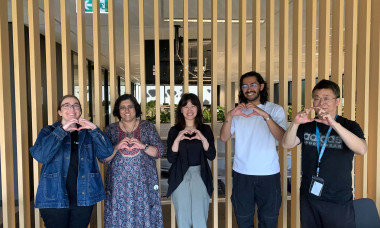Can you give your students a lifelong learning mindset?
Many tertiary education providers would argue instilling a lifelong learning mindset is the job of the K-12 education system, or even early education. By helping to encourage in younger learners that hunger for learning we’re all born with, they should already be primed by the start of adulthood.
Except that often isn’t the case. As a learning culture, we still have a static view of where a tertiary VET or higher ed program will take us once we have the requisite knowledge and skills. We often paper over a volatile, changing reality with the promise of a steady job for our entire lives.
We aren’t getting real with students about work. Or encouraging the lifelong learning they’ll need.
Can we do better?
How to encourage a lifelong learning mindset in your students
There’s no doubt we can.
As part of the tertiary education ecosystem, we’re actually in a great place to transition students from the less job-related world of K-12 education, through into the more work-aligned world of knowledge and skills. What could be more practical than today than making learning lifelong?
Here’s a few ideas on how to achieve that.
1
Help students understand the future working landscape
Students are entering a different world than many of their trainers started out in. With an explosion of technologies changing the knowledge and skills they will require during their careers, as well as whole industries and jobs, students will face automation and the need to live alongside technology.
They need to understand this landscape. Educators can deliver them insights on their industry, the jobs being created or made obsolete, and where it is all heading (backed by predictive analytics). Educators can frame the future better to ensure students to see why lifelong learning makes sense.
2
Inspire students by hiring and encouraging great teaching
None of us should lose sight of the crucial role inspiration plays during tertiary education. As an education community, we’re not only there to act as conduits for skills or assessors of competencies; we’re there to offer students inspiration and motivation for learning in our areas of expertise.
Teachers and trainers provide this inspiration. By delivering professional and engaging learning while sharing their personal passions, experiences and excitement for what the future holds in their respective industries, students are gifted a vision of where learning for life could take them.
3
Don’t assume students know how to learn. Teach them.
As we mature, ‘always on’ learning becomes a difficult proposition. Influenced by our own biology as well as our expectations we should be ‘done’ learning when we finish a course or degree, it’s easy to relax into what we know, rather than challenges ourselves with learning something new.
Teaching ‘learning how to learn’ skills can help. From understanding growth and fixed mindsets, through to the basics of setting goals, understanding learning styles, breaking learning up, practicing information retrieval and learning through doing, educators can turn learning into a habit.
4
Turn your learning offerings into a lifelong proposition
Education providers have the opportunity to deliver lifelong learning themselves by expanding their offering to students. Although front-loaded courses and degrees between school and work are extremely valuable, there’s no reason a provider can’t be part of a longer-term learning journey.
From micro-credentials for mid-career professionals on management or leadership, through to a progression of online-only courses for alumni, education providers can offer an ongoing engagement with their service that will be able to add additional revenue beyond certification or graduation.
We’re still learning too
The truth is that educators are still learning as well. While we take on the challenge of learning new things and doing things differently, largely as a result of digital transformation, we should be ensuring our students have that same opportunity not only today, but throughout their lives.






